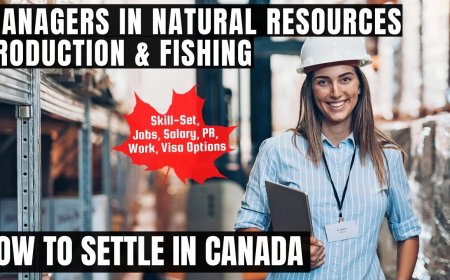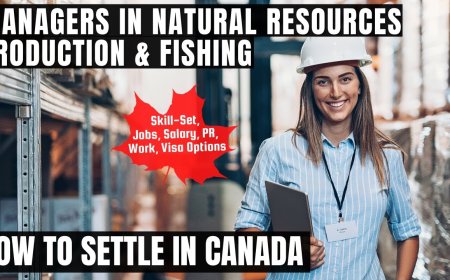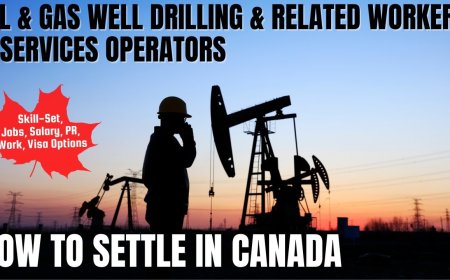Aerospace engineers Migration to Canada: A Detailed Guide on Salaries, Professional Responsibilities, and Preferred Locations
Welcome to the pathway to Canada immigration for skilled professionals and trade workers. This guide is specifically tailored for Aerospace engineers looking to work and settle in Canada, offering a deep dive into the essential aspects of immigration and employment in this field.
Introduction
Canada is known for its thriving aerospace industry and offers lucrative career opportunities for aerospace engineers. In this article, we will delve into the profile of aerospace engineers, their main job duties, education and license requirements, necessary skills, median salaries, and possible visa options for those looking to immigrate to Canada. Whether you are a seasoned aerospace engineer looking to advance your career or a foreign national aspiring to work in Canada's aerospace sector, this article will provide you with valuable information to help you navigate your career path in the aerospace industry.
What is the Profile Description of a Aerospace engineers as per the Canadian National Occupation Classification (NOC) Standards?
Aerospace engineers are professionals who specialize in researching, designing, and developing aerospace vehicles and systems, as well as their components. They are responsible for testing, evaluating, installing, operating, and maintaining these vehicles and systems. Aerospace engineers work in a variety of industries, including aircraft and spacecraft manufacturing, air transport companies, government agencies, and educational and research institutions.
What are the Main Job Duties of a Aerospace engineers in Canada?
- Design and develop aerospace vehicles, systems, and components such as aircraft, spacecraft, missiles, satellites, and space-based communication systems.
- Conduct computer simulations of aerospace vehicles, systems, and components using advanced mathematical modeling.
- Prepare specifications for materials and processes for aerospace manufacturing, maintenance, repair, or modification.
- Supervise and coordinate the manufacturing, assembly, modification, repair, and overhaul of aircraft and spacecraft.
- Investigate and report on structural or system failures, accidents, or incidents and provide recommendations for corrective action.
What are the Education, Certifications, and Licensing Requirements to Work as Aerospace engineers in Canada?
In order to become an Aerospace Engineer, individuals must hold at least a bachelor's degree in aerospace engineering or a related field such as mechanical engineering or engineering physics. Some positions may require a master's degree or doctorate in a relevant engineering discipline. Additionally, individuals must be licensed by a provincial or territorial association of professional engineers in order to validate engineering drawings and reports and practice as a Professional Engineer (P.Eng.). To become registered as a Professional Engineer, individuals must graduate from an accredited educational program, complete three to four years of supervised work experience in engineering, and pass a professional practice examination. These requirements ensure that Aerospace Engineers have the necessary skills and knowledge to excel in their field.
What Essential Skills are Required for Aerospace engineers to succeed in Canada?
Successful aerospace engineers must possess a variety of essential skills. They must have the ability to design and develop aerospace vehicles, systems, and components, as well as conduct computer simulations of them. Additionally, they need to be able to prepare specifications for manufacturing, maintenance, repair, or modification of aerospace equipment, and supervise and coordinate these processes. Aerospace engineers must also be able to coordinate ground and flight tests of aircraft and spacecraft, develop operational specifications and maintenance schedules, and investigate and report on any component failures. Furthermore, they need to develop the technical phases of logistical and operational support for aerospace vehicles and systems. Overall, successful aerospace engineers must have strong technical skills, attention to detail, and the ability to problem solve efficiently in order to excel in this profession.
What is the Median Age and Retirement Age for Aerospace engineers in Canada?
The median age of skilled professionals working as Aerospace engineers is 44 years old, with the average retirement age being 63 years old. This indicates that Aerospace engineers tend to have a relatively long and fulfilling career in this field, with many individuals choosing to retire after several decades of experience and knowledge gained. The age demographic of Aerospace engineers suggests that this profession attracts individuals who are committed to their work and have a passion for the aerospace industry. Overall, these statistics highlight the dedication and longevity of careers in the field of Aerospace engineering.
How many job openings exist for Other Aerospace engineers in Canada, and what's their provincial distribution?
There are a total of 7 job openings for Aerospace engineers in Canada. Among the provinces, Québec has the highest number of job openings with 5 positions available, followed by British Columbia with 1 opening and Saskatchewan with 1 opening as well. It is clear that Québec is the province with the maximum number of job opportunities for Aerospace engineers, while Saskatchewan has the least number of job openings in this field. Aspiring Aerospace engineers looking for job opportunities in Canada may want to consider exploring opportunities in Québec for the best chances of securing a position in this industry.
What is the hourly wage or salary of Aerospace engineers in different Provinces of Canada?
In Canada, Aerospace engineers can expect to earn varying wages depending on the province in which they work. In British Columbia, the wages for Aerospace engineers range from a low of $21.44, a median of $38.34, and a high of $63.19. Moving to Ontario, the wages are slightly higher with a low of $24.52, a median of $45.67, and a high of $72.12. Quebec also offers competitive wages for Aerospace engineers with a low of $28.00, a median of $41.35, and a high of $63.46. Lastly, in Nova Scotia, the wages range from a low of $21.00, a median of $42.35, and a high of $53.85. Overall, Aerospace engineers in Canada can expect to earn a comfortable income, with opportunities for higher wages in provinces such as Ontario and Quebec.
What are the various visa options available for Aerospace engineers migrating to Canada?
Aerospace engineers looking to migrate to Canada have a variety of visa options available to them. One popular option is the Express Entry visa category, which allows skilled workers to apply for permanent residency based on factors such as age, education, work experience, and language proficiency. Aerospace engineers can also explore Provincial Nominee Programs, which are tailored to specific provinces' needs and may offer a faster pathway to permanent residency. Additionally, there are employer-sponsored work visas available for aerospace engineers who have a job offer from a Canadian employer. It is important to note that there may be other visa options open to aerospace engineers, so it's recommended to speak with a professional to discuss all available pathways in detail. To learn more and explore the best migration option for you, book an appointment with our professionals today.
Have Questions or Need Assistance?
If you have any queries or require assistance with your immigration plans, we're here to help. Our experienced immigration consultants are ready to provide personalized guidance tailored to your specific needs.
Don't hesitate to reach out and schedule an appointment today. Whether you're seeking clarification on immigration processes, exploring visa options, or need support with documentation, we're dedicated to assisting you every step of the way.
Book an appointment with our team to discuss your immigration goals and receive expert guidance for your journey to Canada.
What's Your Reaction?
 Like
0
Like
0
 Dislike
0
Dislike
0
 Love
0
Love
0
 Funny
0
Funny
0
 Angry
0
Angry
0
 Sad
0
Sad
0
 Wow
0
Wow
0






































































